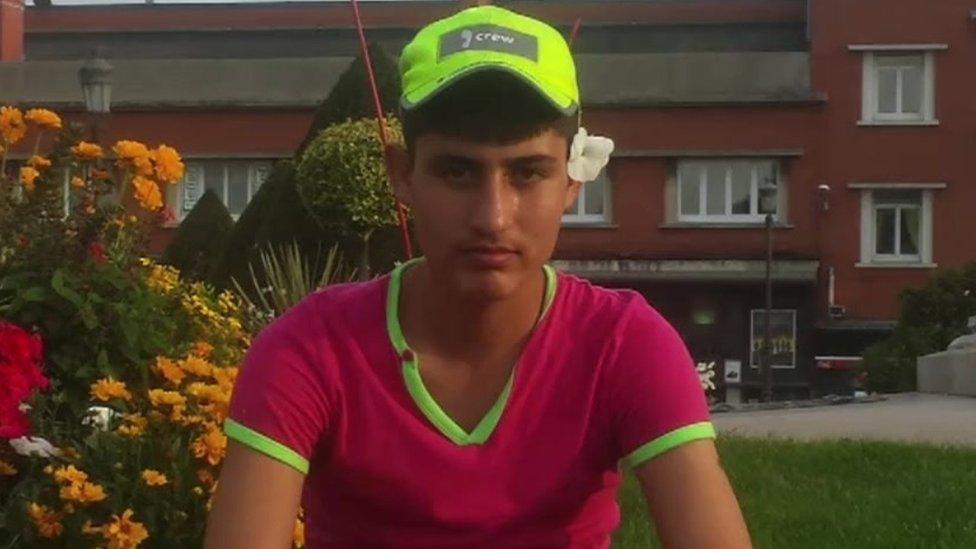Calais camp: Unicef urges UK to transfer refugee children
- Published
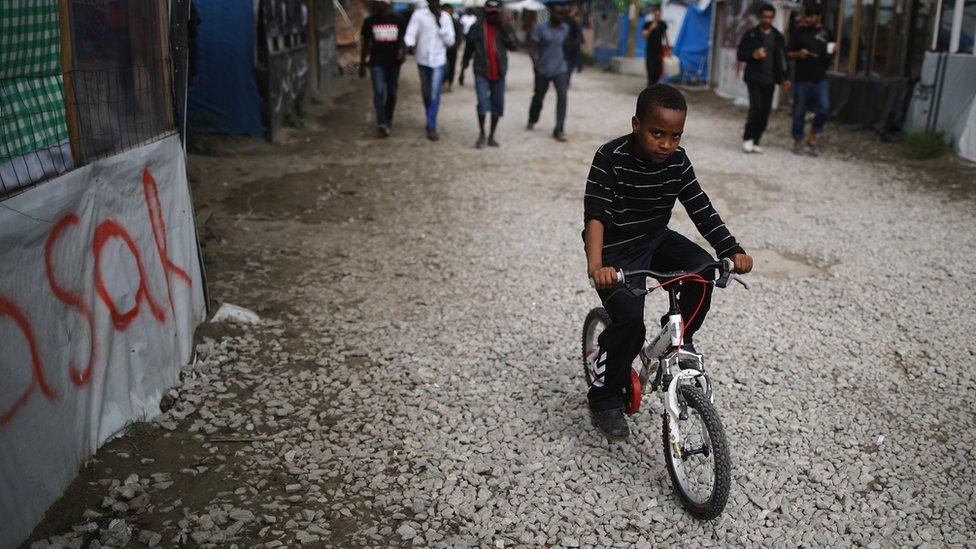
Charities estimate there are about 1,000 unaccompanied children in the Jungle
Unicef is appealing to the British government to speed up the transfer of unaccompanied child refugees from the "Jungle" migrant camp in Calais.
The charity says it is concerned the planned closure of the camp will lead to children there disappearing before they are processed.
Charities estimate there are about 400 unaccompanied children in the Jungle eligible to come to Britain.
The Home Office says it is committed to resettling "vulnerable children".
On a visit to Calais on Monday, French President Francois Hollande pledged to clear the Jungle camp by the end of the year.
The thousands of adults and children there will be relocated to reception centres.
'Missing children'
Unicef fears that children will resist being sent to such centres while their cases are being processed.
Lily Caprani, Unicef UK's deputy executive director, told the BBC: "Last time part of the Jungle camp was demolished, hundreds of children went missing. We don't know what happened to them."
She added the charity fears they could fall into the hands of traffickers or those who would exploit them.
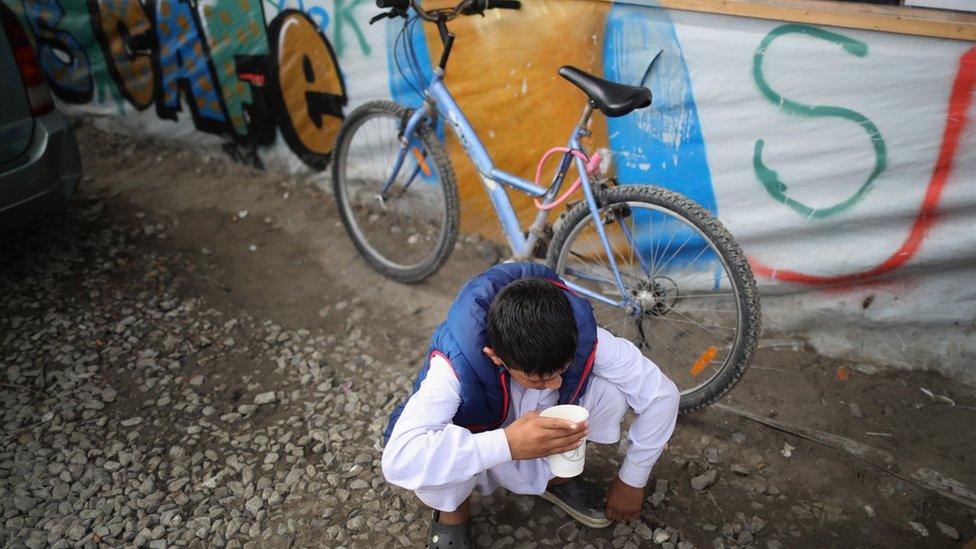
Many children in the Jungle are without their parents
"So now with this new threat of demolishing the camp, we're really concerned for the welfare of those children who are at great risk."
Charities estimate there are about 1,000 unaccompanied minors in the Jungle and about 400 could be resettled in the UK.
They say about half of the 400 could be resettled under the EU's Dublin regulation, which allows lone refugee children to be placed in a country where they have a relative who can be responsible for their care.
Dubs amendment
An amendment to the Immigration Act, originally put forward by Lord Dubs, also requires the government to arrange for the transfer to the UK of unaccompanied refugee children from Europe.
Lord Dubs, a Labour peer and long-time refugee campaigner, came to Britain as a child on the Kinder transport programme to escape Nazi persecution.
The Home Office said the UK government was committed to resettling vulnerable children under the Immigration Act and to ensuring those with links to Britain are brought here.
It added: "We will also continue to support the French government as it provides alternative accommodation to migrants in the camps and returns those not in need of protection to their home countries."

Raheemullah's story
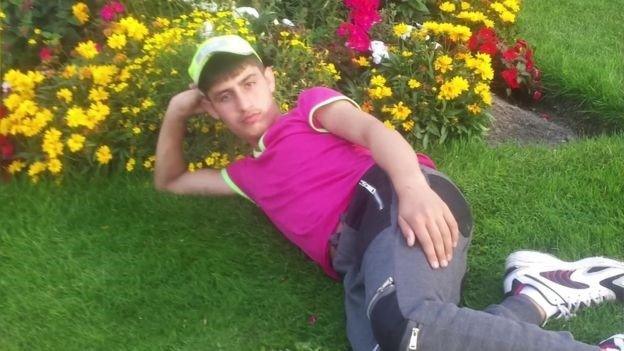
Raheemullah who was from Afghanistan was killed trying to escape the Jungle
The body of 14-year-old Raheemullah Oryakhel was finally returned to his family in Afghanistan this week.
Raheemullah had left his home country and travelled through Europe intent on a better life.
He got as far as France and was trying to cross the Channel to the UK. He was said to have been eligible to come to the UK because he had a brother in Manchester.
He had become impatient for the reunion and was desperate to escape the Jungle migrant camp in Calais.
According to witnesses, he fell after trying to climb on the roof of a lorry and was killed by a hit-and-run driver in a car.
Calais "Jungle" camp: The children trying to flee
As Raheemullah's coffin arrived back in the Afghan capital, Kabul, his relatives gathered to escort his body home.
One recalled how the 14-year-old had asked his family to pray to him for get to the UK for his education and because he loved to play cricket.
There are scores like Raheemullah who are risking their lives on a daily basis as they wait for their claims to travel to the UK to be processed.
War refugee
Sixteen-year-old Mohammed is a war refugee from Syria. He left his home country two years ago and told the BBC that after spending time in Turkey with some of his family who had also fled, he travelled on alone through Europe.
He says he has been in the Jungle for four months and is waiting to be reunited with his brother who lives just across the Channel in Kent.
He is one of the many children in the Calais camp being helped by Safe Passage UK, which is working to have unaccompanied minors transferred to Britain.
Its senior field manager, Laura Griffiths said: "We've registered this child with the French authorities, who will then ask Britain to take charge of the child and bring him safely and legally to the UK where he can be re-united with his brother. From past experience we don't know how long this will take."
Mohammed has attempted to stowaway on lorries and claims he has even got into the water and tried to swim out to ferries bound for Britain.
He told the BBC that he wants to go to the UK so he can can be with his brother and go to school.
And he is clear about where he sees his future: " Only England or Syria," he declares.
And to reiterate this, on the roof of his makeshift home fly the UK and Syrian flags.
- Published2 September 2016
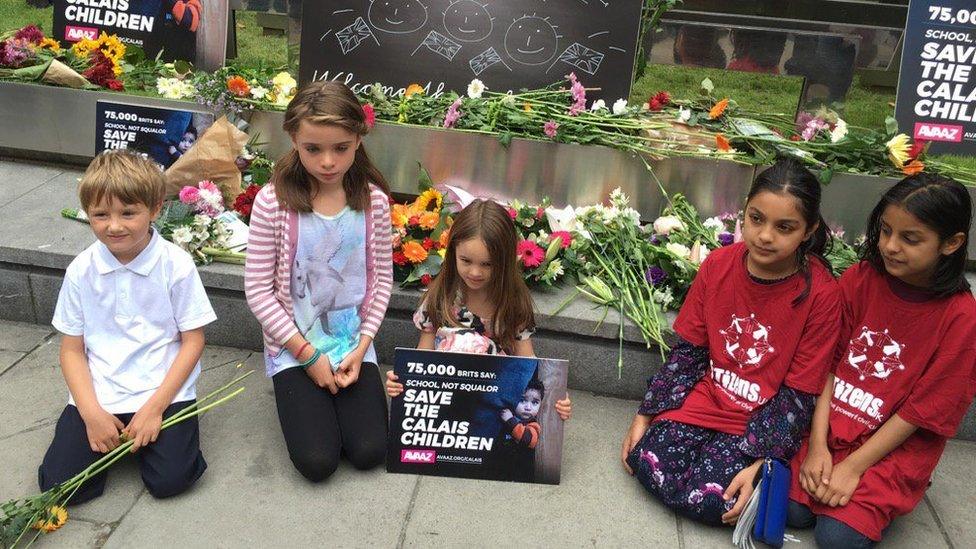
- Published17 August 2016
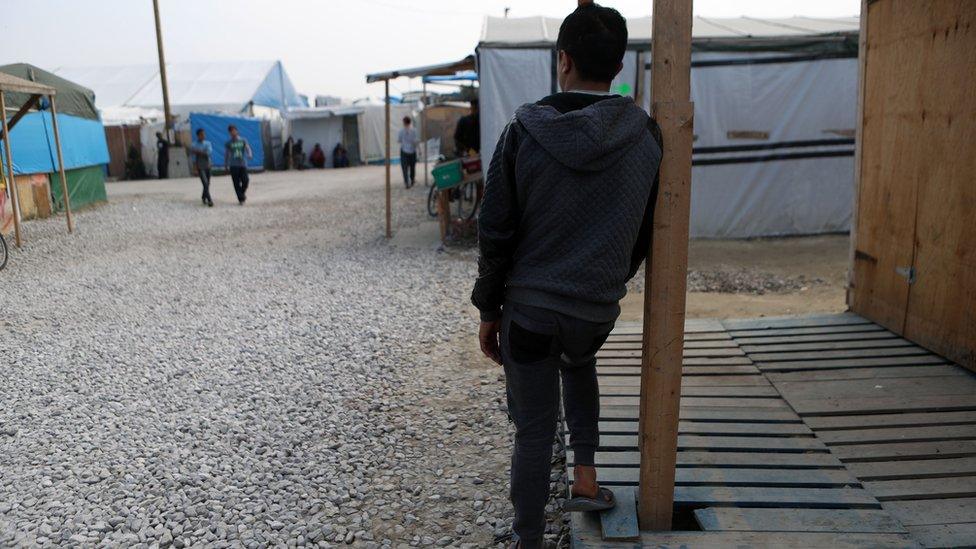
- Published20 September 2016
